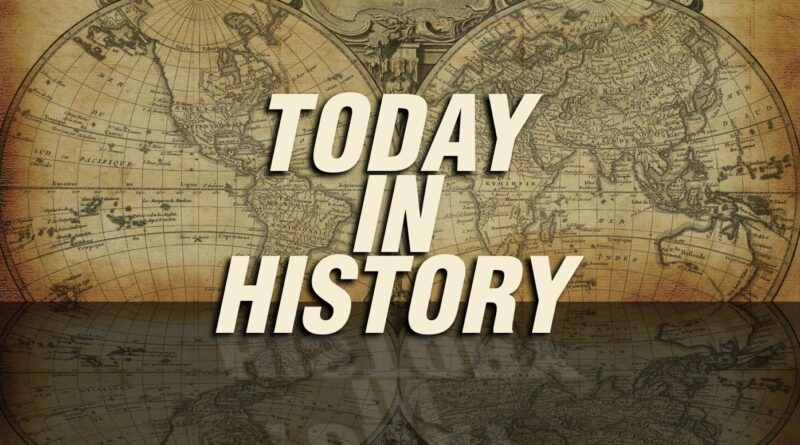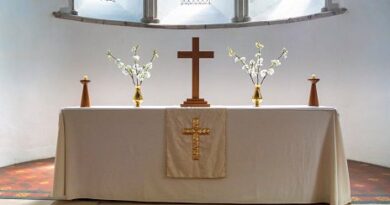October 11: This Day In History (world history).
October 11 is a significant date in history, marked by a number of significant incidents that built nations, inspired religious traditions, and reshaped socioeconomic landscapes worldwide. In Africa, this day represents a convergence of political, social, and religious changes, emphasising the continent’s path through independence, civil war, and the rise of Christianity.
- 1980: Nigerian Independence Day Speech by Shehu Shagari (Nigeria): In his Independence Day speech in early October, Nigerian President Shehu Shagari called for national unity and addressed key challenges the country faced. Shagari was Nigeria’s first democratically elected president after years of military rule, representing the return to civilian governance.
- 2014: Pope Francis Hosts African Bishops Synod on Family Issues (Vatican): Although held in the Vatican, this synod had significant implications for Africa. On October 11, 2014, Pope Francis led a synod with African bishops on family life and social issues, discussing matters like marriage, divorce, polygamy, and poverty, which are central concerns for many African Christian communities. The outcomes of this synod influenced Catholic doctrine and pastoral care across the continent.

- 1971: Founding of the Evangelical Church Winning All (ECWA) (Nigeria): ECWA, one of the largest evangelical Christian denominations in Nigeria, was officially formed in 1971 from earlier mission efforts by the Sudan Interior Mission (SIM). The church’s rapid growth through October of that year marked a significant moment for Christianity in northern Nigeria, particularly among previously unreached peoples.
- 1975: Angola’s Civil War Escalates (Angola): In October 1975, shortly before Angola’s official independence from Portugal, a civil war broke out between rival nationalist factions, including the MPLA, UNITA, and FNLA. This war would last for nearly three decades and involve numerous foreign powers, including the United States, the Soviet Union, Cuba, and South Africa.
- 1895: Founding of the Church Missionary Society in Uganda: The Church Missionary Society (CMS), an Anglican organization, intensified its efforts in Uganda. By 1895, they had established a strong presence in the Buganda Kingdom, and October was a key month for organizing mission work in East Africa. The CMS played a crucial role in shaping Uganda’s Christian landscape, which remains predominantly Christian today.
- 1899: Second Anglo-Boer War Begins (South Africa): The Second Boer War started on this day when the Boers of the South African Republic (Transvaal) and the Orange Free State declared war on the British Empire. The war lasted until 1902, ending in a British victory and marking the beginning of British control over South Africa. This conflict was critical in shaping the future of the country, including its colonial and racial policies.
- 1999: Death of Julius Nyerere (Tanzania): Julius Nyerere, Tanzania’s founding president and one of Africa’s most respected statesmen, passed away in London. Known for his advocacy of African socialism, Nyerere was a prominent figure in the Pan-African movement and played a significant role in the liberation of many African countries from colonial rule.
- 1492: Columbus’s Fleet Sights Land (The Americas): Christopher Columbus’s expedition spotted land in the New World, leading to the European discovery of the Americas. The land was sighted in the Bahamas, where they would land the following day.
- 1960: Formation of the Christian Council of Ghana (Ghana): In October 1960, the Christian Council of Ghana was formed as an ecumenical body to unify Christian denominations in Ghana. The Council aimed to address issues of national importance, such as education, health, and social justice, from a Christian perspective. The organisation continues to be a major voice for Christian unity and advocacy in Ghana.
- 1984: First American Woman to Walk in Space: Kathryn D. Sullivan became the first American woman to walk in space during the Space Shuttle Challenger mission (STS-41-G).
- 1899: Beginning of the Second Boer War: The Second Boer War started between the British Empire and the two Boer republics (Transvaal and the Orange Free State) in South Africa. It lasted until 1902 and ended with a British victory.
- 1919: Founding of the Assemblies of God in Africa (South Africa): In October 1919, Pentecostal missionaries from the Assemblies of God established their first church in South Africa. This event marked the beginning of a significant Pentecostal movement in southern Africa, which would eventually spread to many other African countries, contributing to the growth of evangelical Christianity.
- 1962: Start of the Second Vatican Council (Vatican, with Implications for Asia)
On October 11, 1962, Pope John XXIII opened the Second Vatican Council, which brought significant reforms to the Catholic Church. Many of these reforms, including changes in liturgy and the promotion of ecumenism, had a profound impact on the Catholic Church in Asia, particularly in countries like the Philippines and South Korea, where Catholicism has a large following.
READ: Teen Climber Nima Rinji Sherpa Sets World Record.
Content Credit| Ajibola Emmanuel Adebayo
Picture Credit | https://www.koamnewsnow.com/lifestyle/holidays/today-in-history-july-4/article_dd434789-5e53-5f80-9e6a-e1efe643f0fc.html




